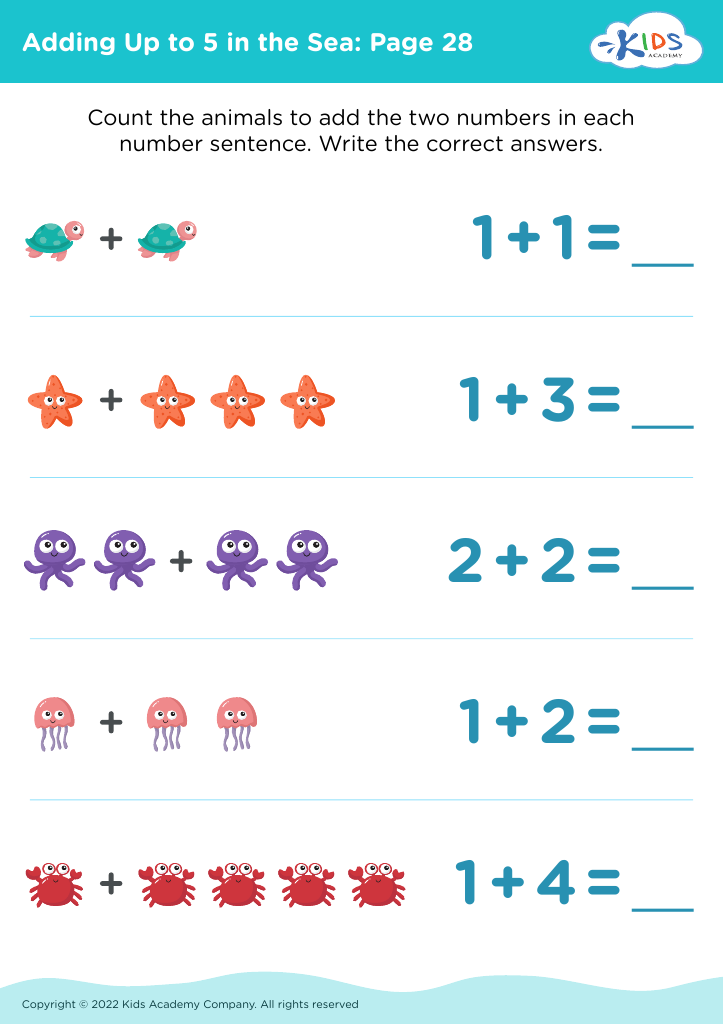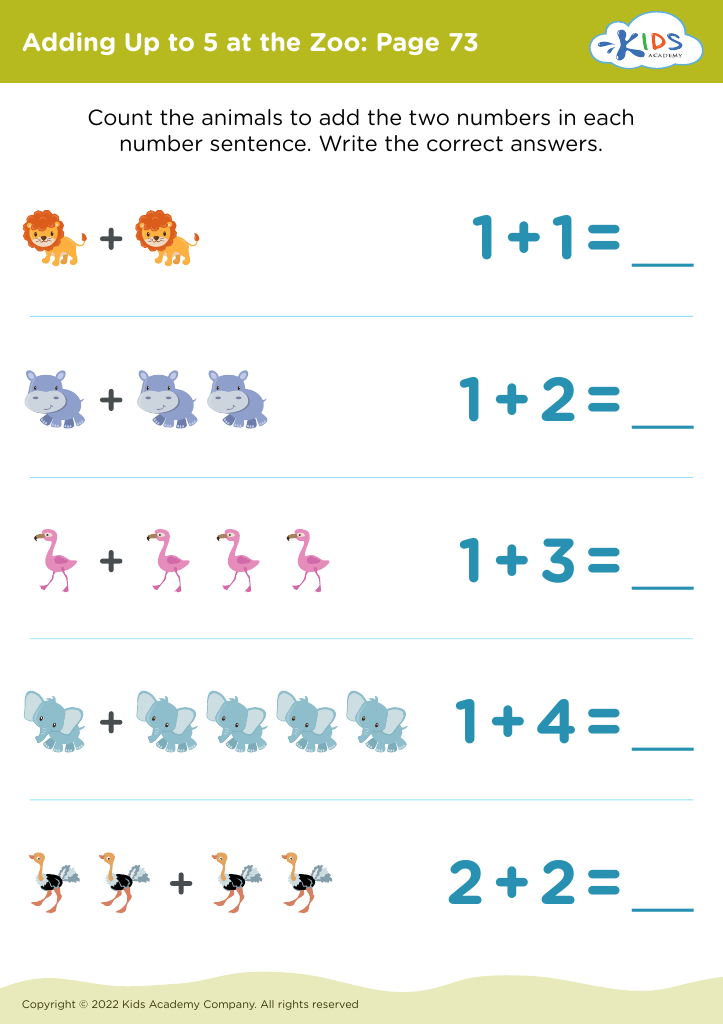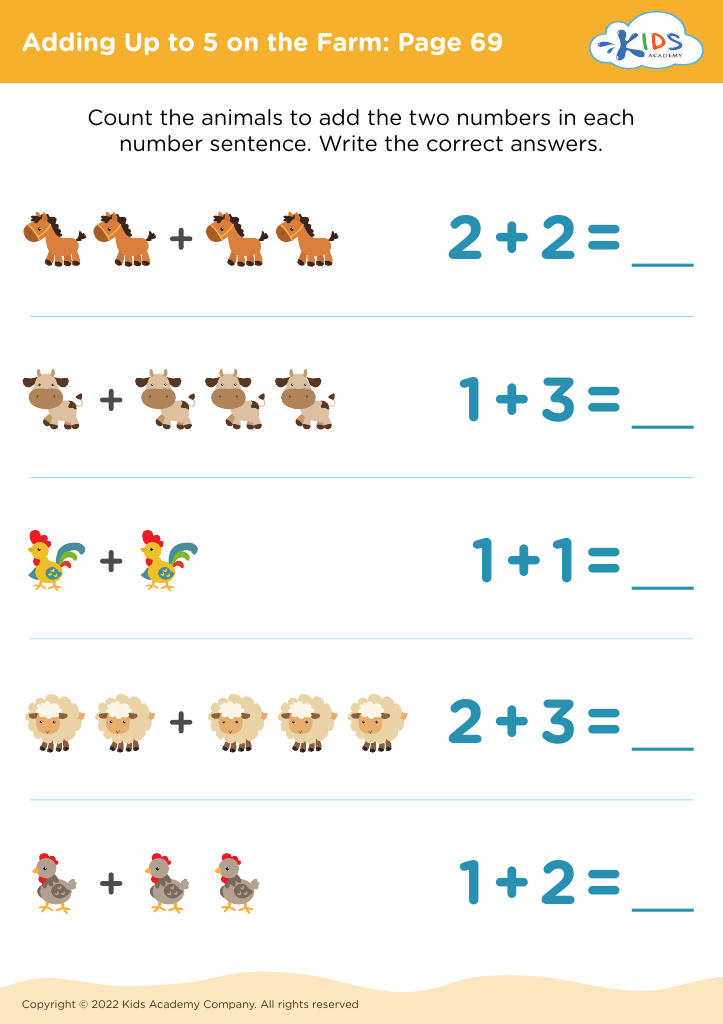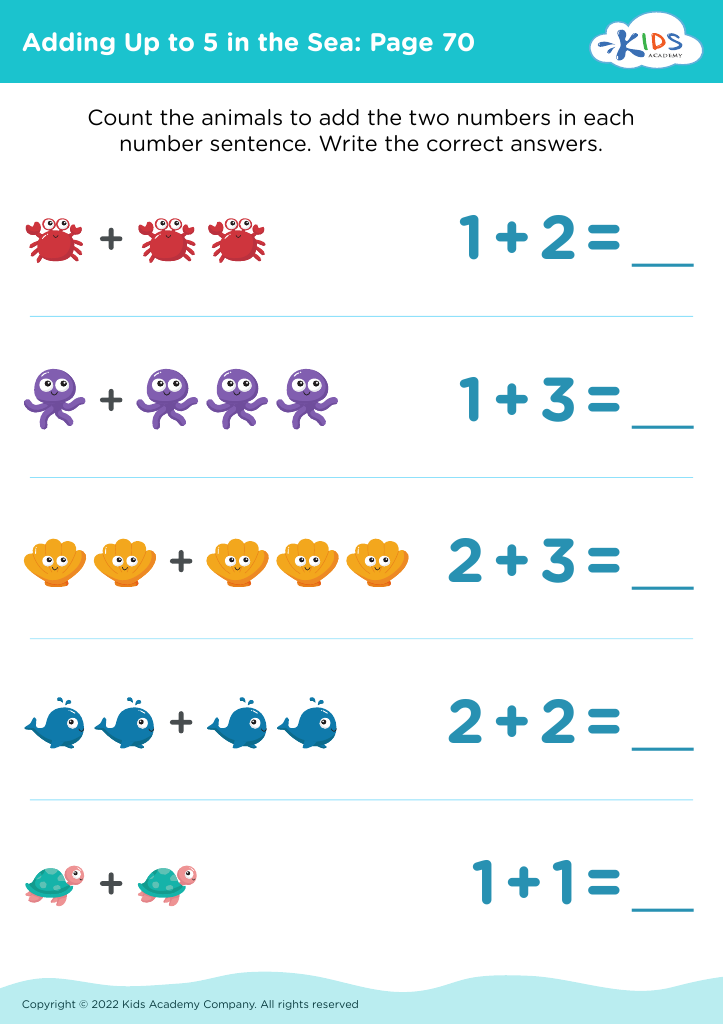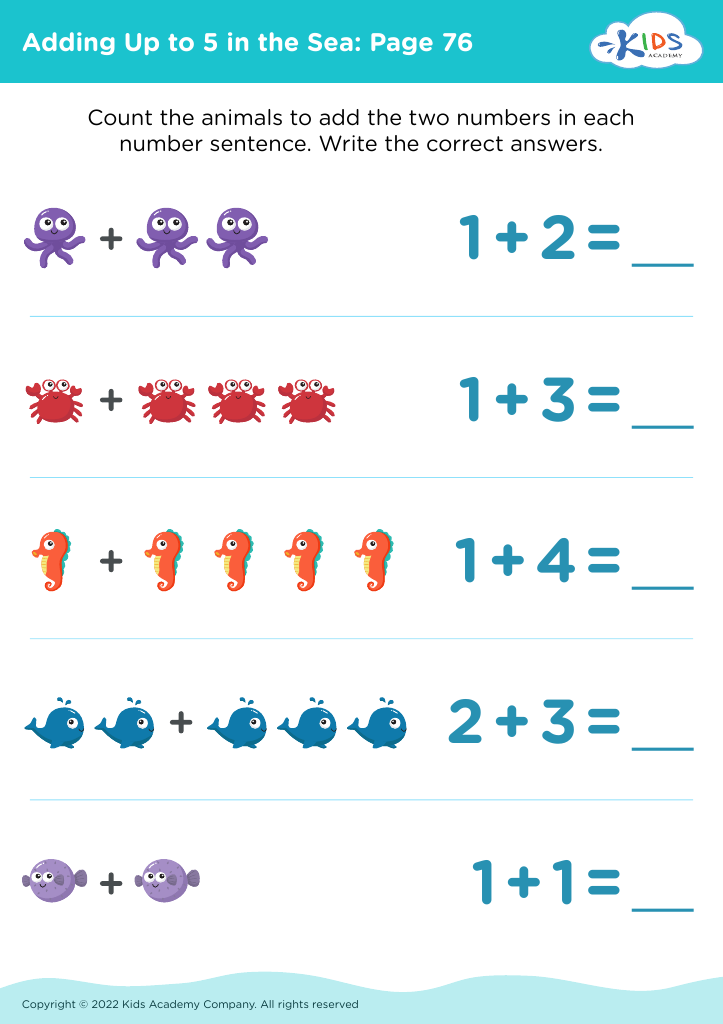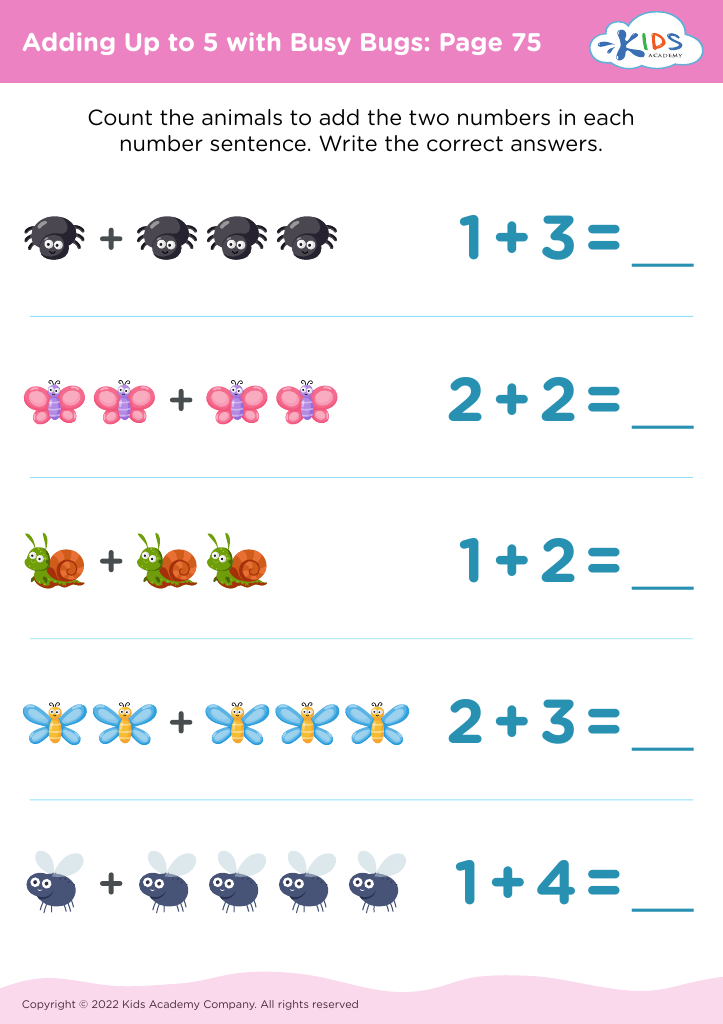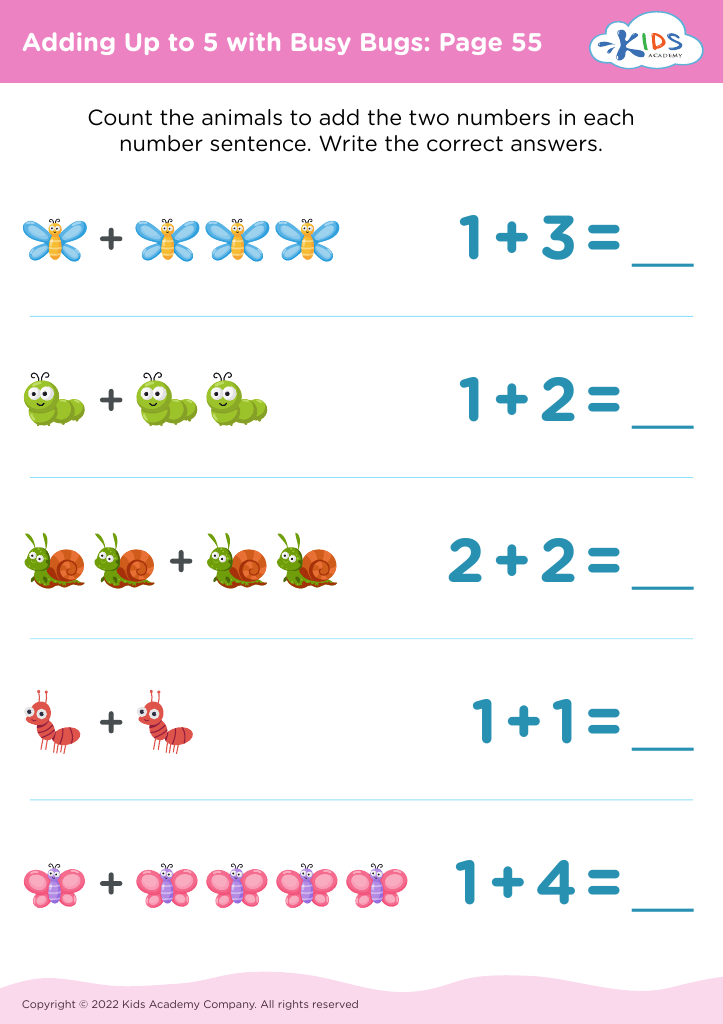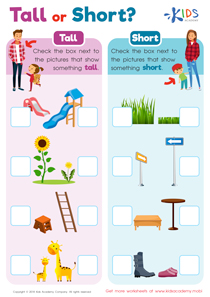Basic Math understanding Preschool Addition & Subtraction Worksheets
7 filtered results
-
From - To
Discover our engaging Preschool Addition and Subtraction Worksheets designed to help young learners grasp basic math concepts! These worksheets are perfect for fostering a strong foundation in addition and subtraction skills. Each activity is tailored to be age-appropriate, encouraging children to explore numbers through fun exercises that stimulate their critical thinking and problem-solving abilities. With colorful illustrations and simple tasks, your preschoolers will enjoy practicing math in a stress-free environment. Download these printable worksheets today to support your child’s early math understanding, making learning a delightful journey filled with exploration and discovery! Boost their confidence and math readiness effortlessly!
Basic math understanding, particularly in addition and subtraction, is a crucial foundation for children's overall cognitive development. Early exposure to these concepts in preschool sets the stage for future academic success. When parents and teachers emphasize basic math skills, they help children develop problem-solving abilities, logical thinking, and critical reasoning.
Understanding addition and subtraction fosters confidence and encourages a positive attitude towards math. Preschoolers who grasp these concepts can engage with more complex mathematical ideas later on, reducing math anxiety. Additionally, learning concepts like “more” and “less” enhances children's ability to make comparisons and understand the world around them.
Furthermore, math literacy promotes essential skills that extend beyond academics, such as budgeting and planning. By integrating fun and engaging math activities into daily routines or classroom settings—like counting toys, simple games, or using visual aids—parents and teachers can create a stimulating learning environment.
Investing time in nurturing basic math understanding in preschoolers pays off in numerous ways, shaping future learners who are not only capable of tackling advanced math but are also equipped to think critically and solve everyday problems. Consequently, fostering these skills early on is beneficial for both children’s education and their lifelong learning journey.
